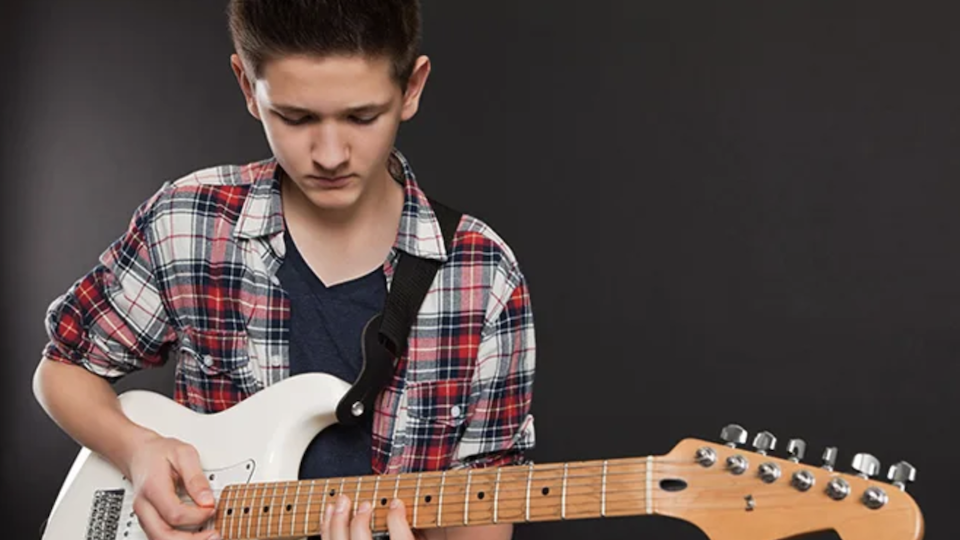Music is here to help us say things we just cannot put into words. We can look at music as a language, a set of languages even, all divided into genres. And each genre has its expressive qualities depending on personal tastes and interests. While some might complain about the current state of music, we live in an age where so much music and learning programs are available online. So it would kinda be a shame not to learn how to play an instrument.
With all this being said, if your child shows any sign of interest in music, it would definitely be a great idea to further encourage them to go down this path. Whether they become professional musicians or not – it doesn’t really matter. Music, as an artform, presents a unique way of expression and is a very engaging experience for everyone, since it’s a way of “communication” between the performer and the audience.
If your child really is interested in music, even a particular instrument, one question remains. What’s the best age for a child to start taking music lessons? Well, this is not exactly the most simple thing to answer as there are a few things to consider here. With this in mind, we’ll be examining this issue and helping you make a decision when’s the best time to send your kids to music classes. So, let us dive into children music lessons a bit more in-depth.
So, what’s the best age?

Technically, there’s no consensus on the “best age” to start learning about music. Looking at big and famous musicians of all genres, we can find anything between 4 and 20 years of age. But in a lot of cases, the youngest ones start taking lessons between 4 and 8 years of age. This practice shows great results if a child shows some genuine interest in music.
But before we ask the question of the best possible age for considering music lessons, there are a few things you need to think of first. For instance, ask yourself what your child will get out of these lessons early on in their life. Then you’ll need to consider the current mental and physical development of your child for a specific instrument. And, of course, whether there are any potential issues.
Well, the benefits are many, as it develops creativity, it helps them in their mental development, and in the long run, it can help in their communicational abilities. And, of course, it teaches them responsibility and discipline from an early age, but through a very engaging process.
However, giving them just a random thing to work on for the sole purpose of keeping them occupied might not always be the best idea. As we already mentioned, it is important that your child shows interest in it. If they really don’t show any attraction or enthusiasm for playing an instrument, you’ll just spend a lot of time and energy on something that won’t yield any results. That’s just how it goes with any artform – you just need to love it.
Things to consider with children music lessons
There are many estimates when it comes to particular instruments. Yes, these are all just rough estimates of ages when a child should start taking lessons, but it still gives some guidelines. For instance, pianos and any keyboard-based instruments are pretty straightforward for a beginner – everything is simply laid out and anyone can just press the keys. That’s enough for a start, right? Therefore, a child can start with piano lessons as early as four years of age.
While it’s a somewhat more complicated instrument, the ukulele is pretty accessible to smaller hands due to its size. Therefore, the ages of 4 or 5 are recommended for starting ukulele lessons.
We would not recommend most of the wind instruments for the earliest of ages. This is because the lungs still need some development first. In case they’re really interested in wind instruments, start with piano lessons so that they can get familiar with basic music elements first. And then, aged 7-to-10, introduce them further to instruments like the clarinet, flute, saxophone, and others.
As for guitars, or any other string instruments bigger than a ukulele, the minimum recommended age is somewhere between 7 and 9. The hands still need some development and starting out on standard acoustic or classical guitars might be a bit too difficult and ultimately discouraging. However, there are plenty of smaller guitars these days, some specialized for children as young as 4.
Like we said – these are all rough estimates and it all may differ. In some cases, children might find interest in music later on in their lives. It’s not rare that this happens at ages above 12 or 13.
Conclusion
Overall, there are plenty of benefits from taking children music lessons earlier, from ages four and onward. In a way, the process is similar to learning a new language. It also helps the brain develop in these early phases of life. Also, if they show more interest, the headstart allows them to get better technical skills and music-theory knowledge.
It’s well known that some famous musicians started really early. For instance, Mozart began performing at the age of 6 and composed some of his first works before the age of 10.
On the other hand, it’s not the best idea to force them if they don’t find any interest in music. As we mentioned above, forcing your child to take music lessons can easily backfire.
But if they show interest, it’s basically never too early to get them on the right track. Somewhere around the age of four can be just the perfect time for some basic concepts.